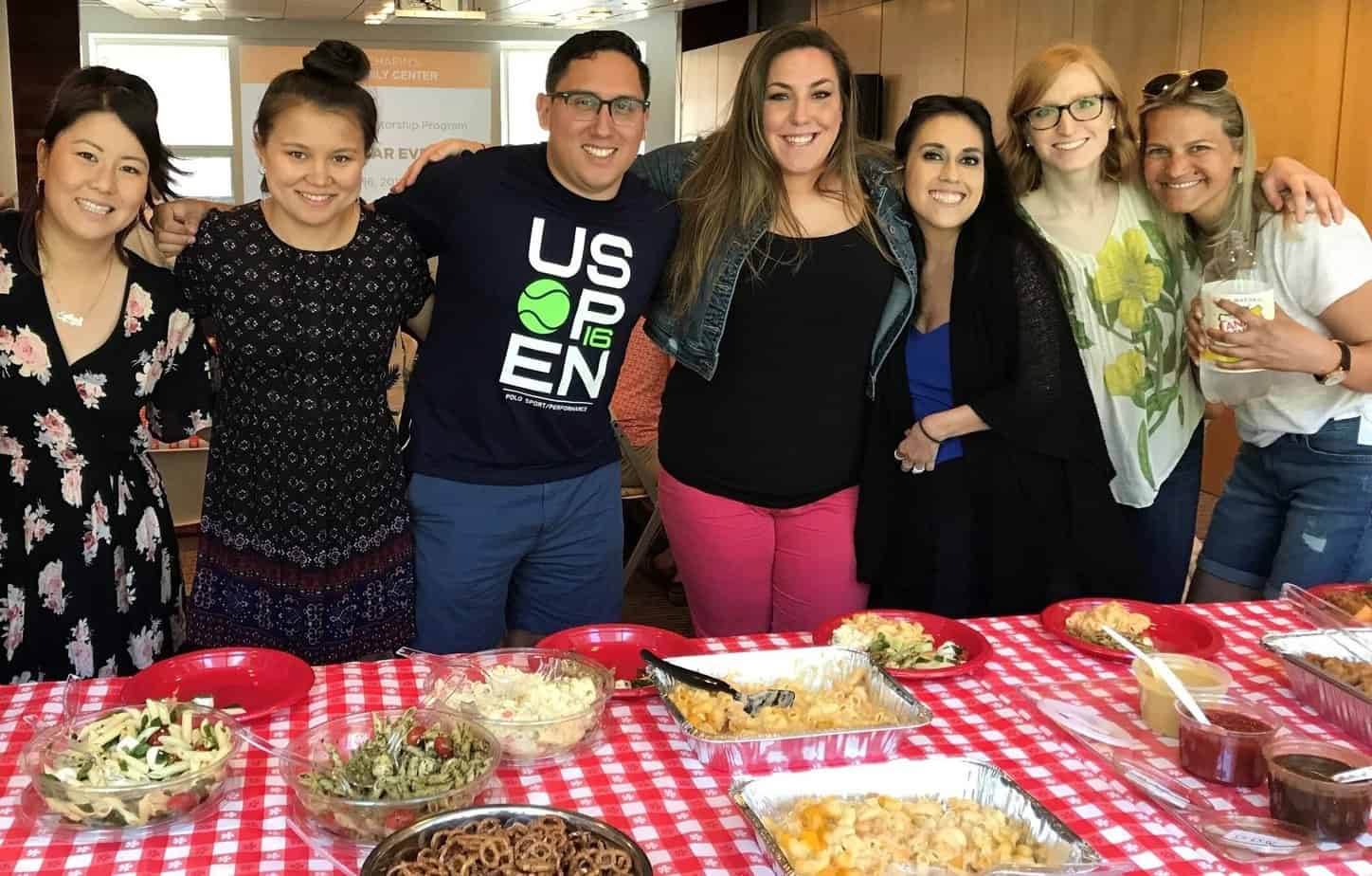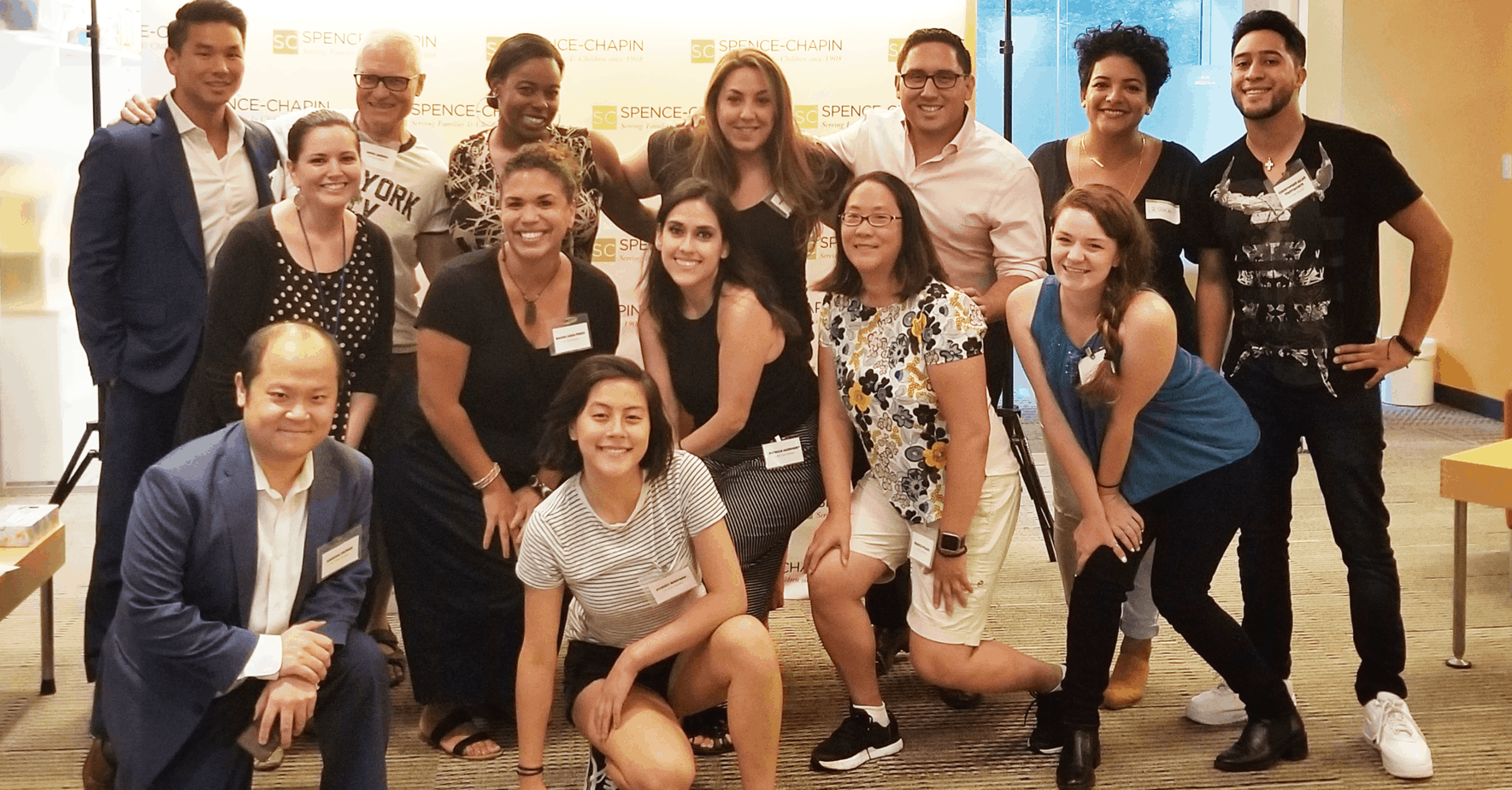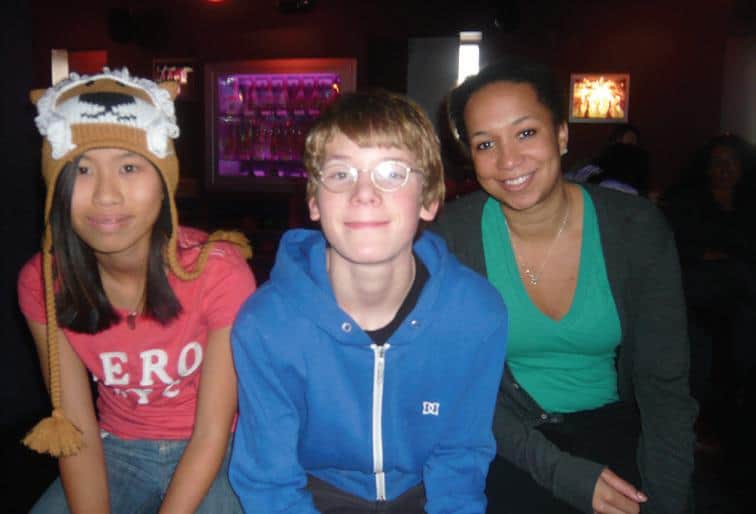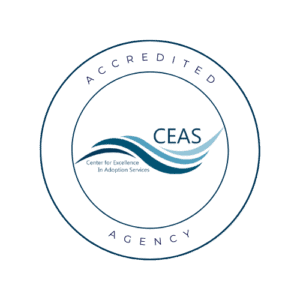By Jessica Luciere – Community Liaison, Adoption Mentorship Program
In everyone’s life, it is important to find the right community. That is no less true for people who were adopted. When we are older, we’re able to dig into our own identities with more of a worldly view of ourselves. When we are younger, sometimes this navigation needs more guidance. Adoptive parents know the value and power in meeting other adoptive parents, creating those safe spaces and finding ways to connect with one another. When parents search out these communities for their kids it is just as important and defining. The youngest years of a child’s life are formative, which is why giving them the space to connect with others who have such a common bond as adoption is so important.
Many people are touched and affected by adoption, which is why creating the right programming to facilitate safe spaces in the adoption community, is so important. As an adoptee myself, and someone who has benefitted from programs that allow me to interact with other adoptees, I know personally how powerful these programs can be. When adoptees have access to each other, they have access to stories that may or may not relate to their own, they meet people from similar and different backgrounds, but who all share this one common, deep-rooted experience.

Spence-Chapin’s Adoption Mentorship Program has been for running for 15 years continuously, I have been a Mentor in this program for those past 15 years. We have seen the lasting effects that creating a community has had on the many Mentors and Mentees who have participated in the program over the years. The bonds that are created when we give room to this topic have been incredible. For some, it may be their first time talking about their stories publicly, or even sharing a room with fellow adoptees. When adoptees are given the opportunity to share their stories, listen to each other, and get to know one another we are creating a space that adoptees may not necessarily find outside of these walls. Allowing adoptees to share a space helps eliminate a feeling of aloneness that can sometimes happen, especially for younger teens who have not yet learned how to manage their emotions, is so important. Adoptees who are older may also feel a sense of aloneness, so creating a Mentorship program where adults are Mentoring other younger adoptees creates a platform for everyone to work through these obstacles simultaneously. Often, we see that those who participate in the Mentorship program as youths, then come back as they get older to become Mentors to the new generation of adoptees. Adoptees finding themselves amongst peers, and finding their community is powerful.

Much of adoption history has been covered in secrecy. Parents might be afraid to talk about certain adoption issues for fear of causing pain for their child or not knowing when or how to have these conversations. The Adoption Mentorship Program helps adolescents find their voices and build their growing understanding of their identity in a safe nurturing way with others who have gone thru what they might be going thru now. The challenge is incorporating your adoption identity and all that it means to you with pride as you move throughout life. It will always remain a continuous and ever-changing experience for all those who seek it. The Mentors who participate in this program will often say that they take away just as much from this program as the kids and parents do. The Mentors see themselves oftentimes, reflected back to them in the Mentees. Remembering what it was like to be their age, adopted, with questions and not always a clear path to the answers, gives them the chance to relive, but in present times, what the teen adoptee experience is, and was like. In the same respect, our Mentees can seek guidance from the adults who have lived through some of the experiences they may have had and could have in the future.

Adoptive parents know that giving their child a space to share this intimate part of their lives is important, and healthy. It is always encouraged and shared with parents that they start the conversation of adoption at home. Once the child knows that there is a safe space to share any feelings they may have, generally, it may open them up to find words to explain to their parents and friends what they are thinking and feeling about their adoptions. Parents are key players in adoptees growing into their adoption identities, trust starts at the home, so for kids to have a healthy space to share before they reach these programs allows for a more open experience. We also understand that giving a community to the parents is important, adoptive parents have stories of their own to share, questions that only other adoptive parents can answer and relate to. Creating a separate space for parents to connect with one another is paramount.
These are just some of the reasons why community services are so important in building an adoption community for you and your family. Our Adoption Mentorship Program provides a community for adolescent adoptees to explore their adoption identity while having fun with kids their age, and Mentors who are familiar with what they are going thru at this stage of their lives. Mentorship provides a fun and open, yet safe space for the teens to express themselves, and their parents understand how to support their teens as their child’s understanding of their own identity is ever changing.

When programs are geared towards the specific needs of a community and have the right tools in place to ensure its success and participation, there is no limit to the good that can come from them. Adoption is a beautiful and complicated part of the lives that it touches, and it is important to give space to let that ever-changing, and personal relationship with adoption grow.
Learn more about programs and services that support your adopted tween or teen here or contact us at [email protected] or 646-539-2167.






